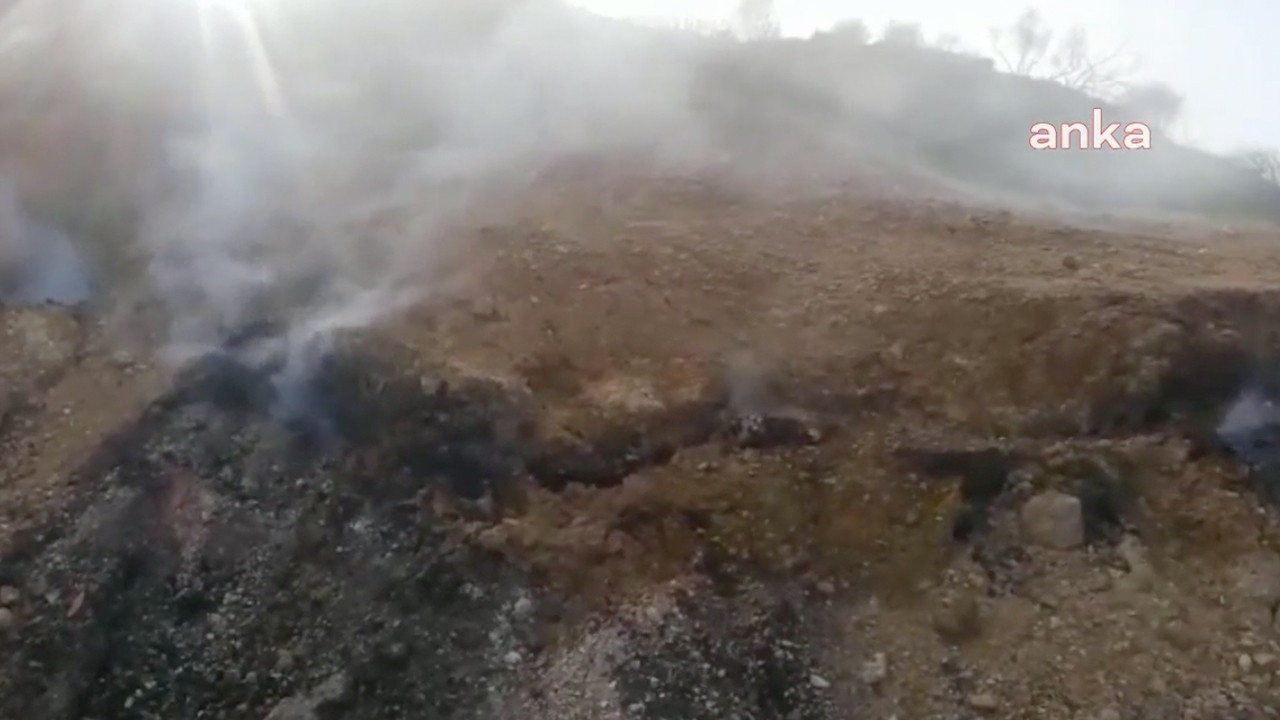Environmentalists concerned over Turkey becoming Europe's waste dump
A recent report by Greenpeace revealed that Turkey is on track to becoming Europe's largest plastic waste importer: Plastic waste imports from European countries have reportedly increased by 196 times since 2004 and 659,960 tonnes of waste had been imported in 2020 alone.
Duvar English
Turkey's mass importation of garbage from the European Union became a point of controversy over the past week as a result of an April report by Greenpeace, which showed that Turkey was on track to becoming Europe's largest plastic dumpsite.
A BBC report dated July 26, 2020 had shown industrial-scale dumpsites comprised of waste that the United Kingdom exported to Turkey for recycling, while Eurostat data from the Greenpeace report revealed about 13.7 million tons of waste being sent to Turkey from European countries annually.
Plastic waste imports from European countries have increased by 196 times since 2004, Greenpeace noted in their report, and that 659,960 tonnes of waste had been imported in 2020 alone.
"The data and the field both show that we continue to be Europe's biggest dumpster of plastic waste," Greenpeace Mediterranean Biodiversity leader Nihan Temiz Ataş said.
Among the world's largest environmental activism groups, Greenpeace has been conducting a project called "Don't let Turkey become a plastic dump site!" which has led to a lowering of the Environment and Urbanization Ministry's quota for waste imports, Ataş noted.
"There's still been an increase in waste imports, which shows that surveillance mechanisms should be strengthened," Ataş said. "We encourage the ministry to increase monitoring efforts and transparency."
The ministry has set a goal of completely eliminating waste imports by January, the director said, adding that they are waiting for the state to release an action plan to ban plastic waste imports.
Locals worry about environmental destruction
Turkish news agencies followed up on the BBC's reporting, which had revealed that imported waste meant for recycling was often burned instead in the southern province.
Trash imports could lead to severe health problems for locals of Adana's Çukurova district, and could cause environmental damage, Çukurova University lecturer Dr. Sedat Gündoğdu said, noting that waste burning has become increasingly more common over the past two years.
"As you can see, there are piles of trash all over the district. When burned, all of this goes in the air," Gündoğdu noted, adding that "Heavy rains carry trash into nearby Seyhan and Ceyhan Rivers."
Çukurova’s agricultural fields are also affected from the waste imports, Gündoğdu said, while main opposition Republican People's Party (CHP) Adana deputy Turgay Develi said that the pollution created by the burning of the waste creates air and water pollution.
"These fields are the main arteries of Adana, even Turkey. It's causing environmental harm, even environmental destruction," the deputy said.
Government reluctance to manage
Local government has remained reluctant to regulate trash waste, the CHP deputy said, adding that the only official statement about the issue had come from ruling Justice and Development Party (AKP) deputy Jülide Sarıeroğlu.
Sarıeroğlu said that the Adana Governor's Office was working with central government to fine improper management of waste and that "the government's environmental sensitivity is peak."
CHP Adana deputy Müzeyyen Şevkin presented a set of parliamentary questions about the waste imports, inquiring about the quantity of imports since the practice started.
Şevkin also asked how often the imports are regulated, how many violations of recycling procedures had been detected, and what the repercussions had been.

 Undervalued and unrecognized, Turkish waste pickers at mercy of formal recycling sectorDomestic
Undervalued and unrecognized, Turkish waste pickers at mercy of formal recycling sectorDomestic 'İzmir's Chernobyl': Nuclear waste in former factory site worries localsEnvironment
'İzmir's Chernobyl': Nuclear waste in former factory site worries localsEnvironment